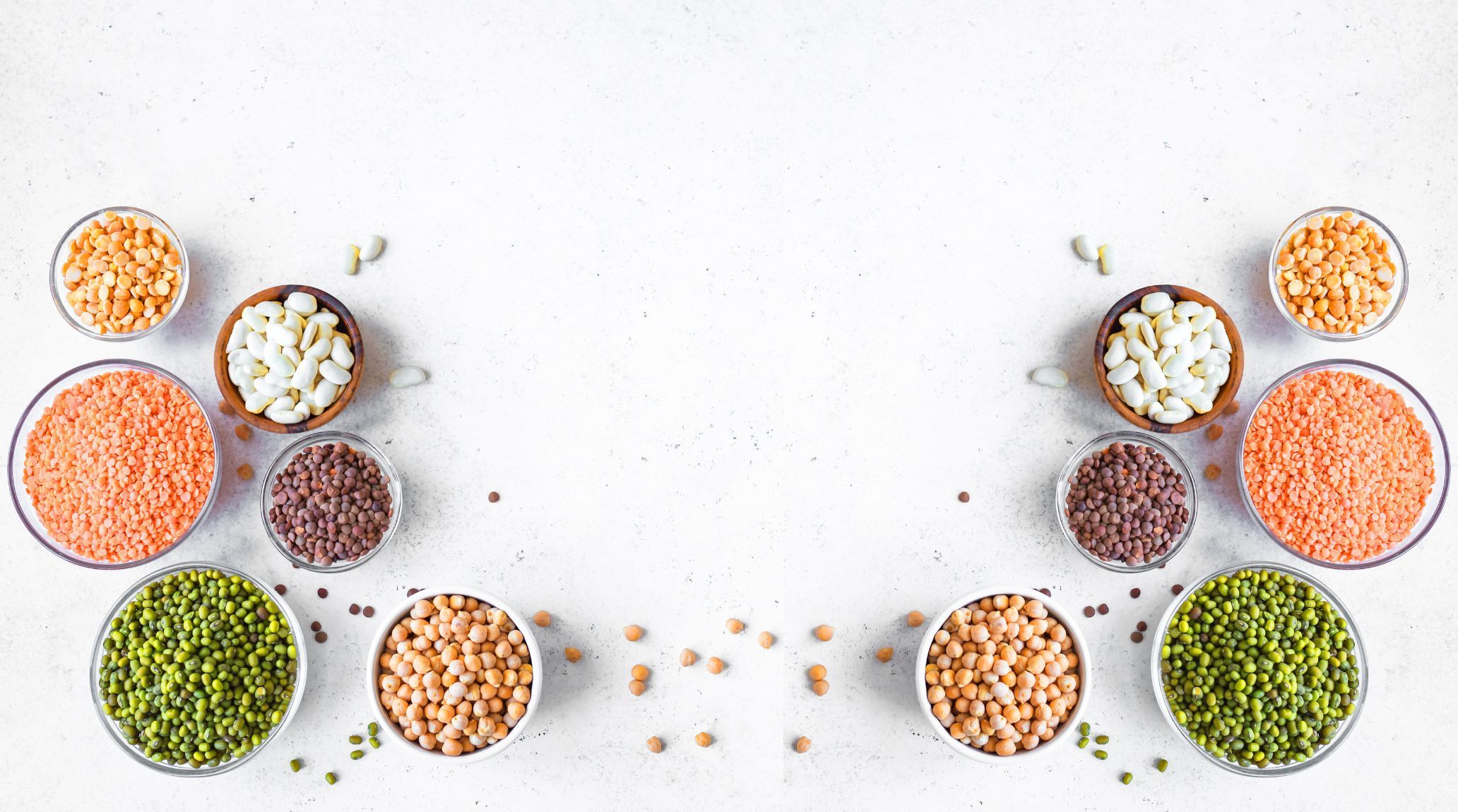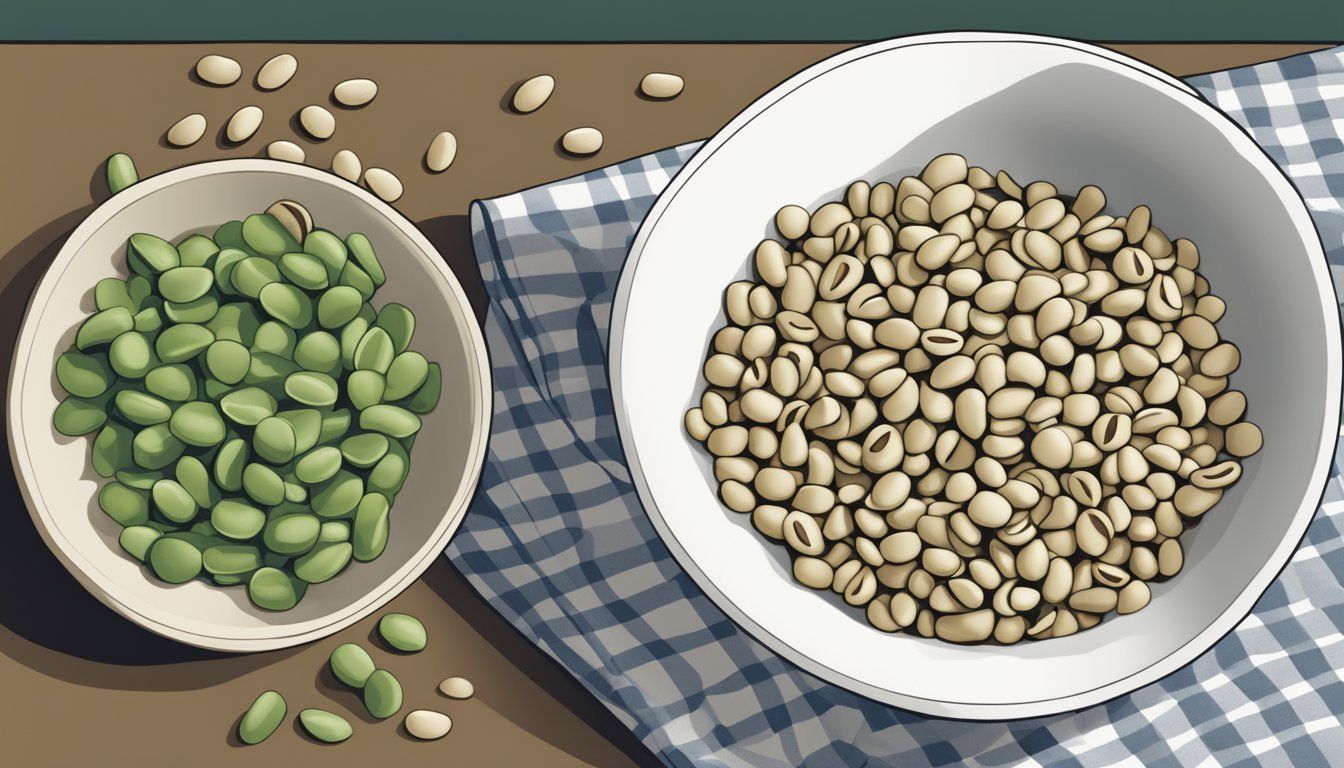
“
Let's dive into the world of legumes and uncover fascinating facts about these nutritious seeds. Legumes play a crucial role in diets worldwide, offering a powerhouse of proteins, fibres, vitamins, and minerals. Join us as we delve into the diverse world of legumes and discover their benefits for a healthy lifestyle.1
1
1
”
Legumes are packed with essential vitamins like B vitamins, iron, and zinc, which are vital for supporting a strong immune system and overall health. These nutrients play crucial roles in keeping us energised and resilient against illness. 1
Four out of eight founder crops were legumes: lentils, peas, chickpeas, and bitter vetch. Lentils are believed to be the first domesticated grain legume, dating back to 11,000 BC. 2

Beans and peas, classified as legumes, are not just nutritious seeds but also sprout into plants that provide valuable protein. This protein is essential for building and repairing muscles, ensuring we stay strong and active.
The Fabaceae, also known as the legume, pea, or bean family, is the third-largest family of flowering plants. It includes over 20,000 species, showcasing its vast diversity. This family plays a crucial role in both ecology and agriculture. 3
Legumes are natural nitrogen-fixers. They partner with bacteria in their roots to convert atmospheric nitrogen into a usable form for plant growth, enriching the soil and promoting sustainable agriculture. 4
Some legume plants, such as runner beans, have achieved world records; for example, the longest bean pod ever recorded stretched over 1.5 meters. This impressive size highlights the remarkable growth potential of legumes. 5
Legumes have been a fundamental food source for thousands of years, with evidence of their cultivation dating back to 7000 BCE. Their long history underscores their nutritional importance and adaptability across different climates.6
Legumes are renowned for their high protein content, which is essential for various bodily functions including muscle growth, repair, and maintaining energy levels. 7
Legumes form a unique symbiotic relationship with nitrogen-fixing bacteria in their root nodules. This process enriches the soil with nitrogen, reducing the need for synthetic fertilizers and enhancing soil fertility for future crops. 8
Globally, legumes are enjoyed in a variety of dishes, such as beans in burritos or lentils in soups. Their versatility allows them to be incorporated into many cuisines, showcasing their wide appeal and nutritional benefits. 9
Legumes offer a wide range of benefits, providing not only food but also medicines, oils, chemicals, and dyes. They are used in timber production and as ornamental plants in gardens. Their versatility makes them invaluable in various sectors. 10
Legumes are considered an ideal food source for long-duration space missions due to their high nutrient content and adaptability to controlled growing environments. These are components for sustaining astronauts on extended journeys. 11

Add legumes to meals as a side, like in salads or soups. Start with milder varieties, such as chickpeas or white beans, and gradually increase their portion. To avoid digestive issues, soak dry beans and introduce legumes slowly.
As of recent data, India is the world's largest producer of legumes, including chickpeas, lentils, and pigeon peas. The country dominates in the cultivation of these essential crops, contributing significantly to global legume production. 12
In 2017, Tamil 89.4 FM in the UAE set a Guinness World Record for the largest legume donation within 24 hours, gathering over 22,336 kg of legumes. This achievement was part of a corporate social responsibility campaign. 13
Legumes offer numerous health benefits, including improved heart health, better digestion, and a reduced risk of chronic diseases. Rich in protein, fibre, and essential nutrients, they contribute to overall wellness. 14
Mashed legumes can be transformed into flavorful and nutritious burgers, providing a healthy, plant-based alternative that is rich in nutrients and flavour. So, legumes are an excellent choice for those seeking healthier eating options. 15
Legumes are environmentally friendly as they require less water and energy to grow compared to other crops. This sustainability makes them a responsible choice for reducing environmental impact while still providing essential nutrients. 16
Legumes like black beans and lentils are rich in antioxidants, which help protect the body from damage caused by free radicals. They can potentially lower the risk of chronic diseases and support overall health. 17
Incorporating legumes into our meals keeps our digestive system happy and functioning smoothly. These nutrient-packed seeds provide sustained energy, which is especially beneficial for active kids who need fuel for their daily activities. 18


